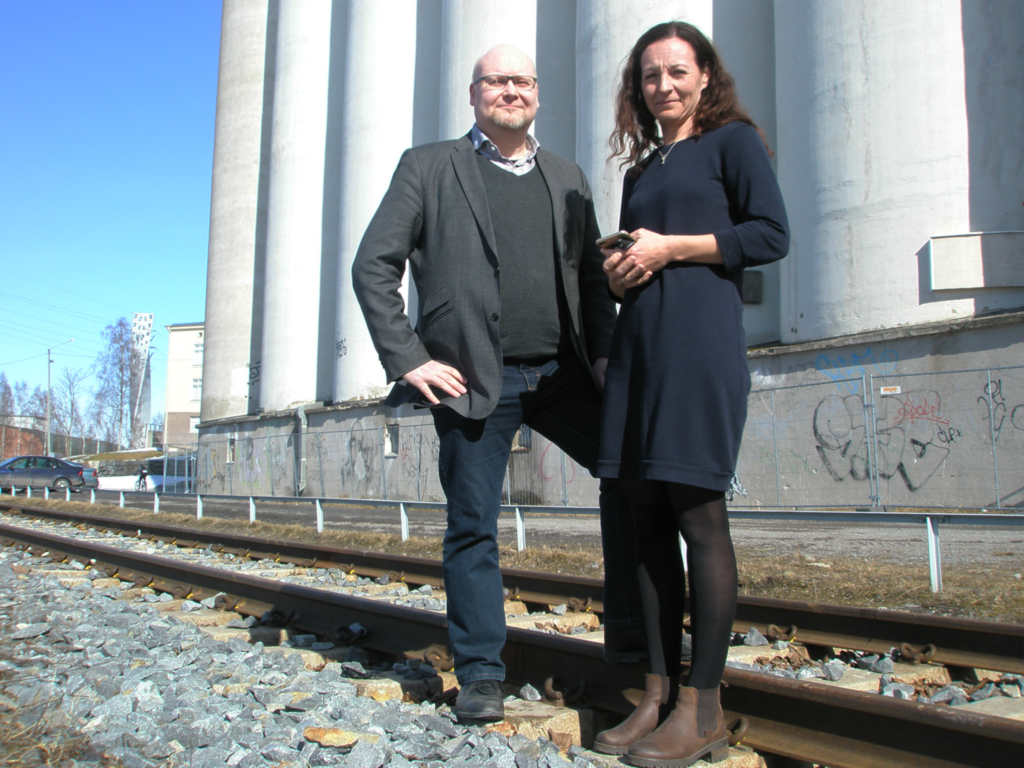6.2.2020
A new learning model to enhance citizen participation
How to teach citizens to become active members of the society? Peter Ehrström, Head of Research in Regional Science, and Marina Lindell, Project Researcher at the Social Science Research Institute of Åbo Akademi University in Vaasa, approached the question by inviting a group of students on a course that utilized a method called Deliberative Walks. The experiment produced very positive results.
Deliberative Walks, developed by Ehrström and Harri Raisio, University Lecturer at the University of Vaasa, is a model of participatory democracy that combines citizens’ juries and development walks.
The method is intended to be applied in matters concerning, for example, urban planning. It can help to find out the views of various groups of people on how a particular area should be developed.
“Some of the models of participatory democracy are too theoretical. In case a method aims primarily at collecting expert views, there is a risk that people with lower levels of education, for instance, feel that they are at a disadvantage. That would be unfortunate, as the specific purpose of participatory democracy is to listen to all opinions, not just those of the elite”, explains Ehrström.
The participants of the course included both international and local students of various subjects, women as well as men. They were assigned to deliberate on the planning of an area around the Åbo Akademi University campus in Vaasa and create new development ideas for the area.
“The idea is to bring together people from various backgrounds and with different skills and to get them to discuss, deliberate, compromise and make decisions. As a result of all this, they should be able, as a group, to present and justify the conclusion they have reached together. It is especially valuable to offer international and local students a chance to meet, work together and establish relationships across subject, language and cultural borders. The ability to be open and receptive to new impressions, ideas and opportunities for cooperation is particularly important in today’s world”, says Ehrström.

The course also had an educational aspect: In order to strengthen the participants’ learning processes, it combined different teaching methods, both place-based and theoretical ones.
The course started with a series of lectures on, for example, participatory democracy, urban planning, architecture and art. After that, the participants took a two-hour development walk in and around the Academill building as well as in the museum area of the inner harbour of Vaasa. During the walk, the participants had the opportunity to see and experience the area and meet people who work there to learn about their points of view.
To wrap up the course, the participants spent a whole day discussing ideas on how to develop the area. Many proposals were made but in the end the deliberation process led to a concrete outcome with five practical proposals that all participants agreed upon. These proposals were presented to local decision-makers and representatives of the media.
According to feedback from questionnaires and interviews, the course increased the participants’ engagement in the society as well as their understanding of participatory democracy as a part of political decision-making.
“We should keep in mind that we need more than just active citizens. Many of our students will become decision-makers in the future, and it is important for them to understand that tools like this are available for decision-makers to engage citizens”, says Ehrström.
The course experience also enhanced the participants’ sense of inclusion and boosted their self-confidence to express and discuss their own opinions.
“By adding elements like place-based learning and outdoor pedagogy and by including varied discussion formats, we make discussions more inclusive and more appealing to people who normally might not take part in them at all. Decision-makers and citizens move closer towards each other and learning becomes more equal”, says Marina Lindell.
“Above all, the method aims at making all participants feel that their opinions are valuable. Some contribute by bringing in theoretical expertise while others provide local knowledge, and all of them should feel that their contribution is important”, Ehrström points out.
Ehrström arranged a course like this in Hamburg, Germany, in 2019. As both experiments have been very successful, similar courses will be offered within the subject Regional Science at Åbo Akademi University in Vaasa during the academic years 2020–2022.
“Universities can play a central and important role in societal development when it comes to teaching citizens to become active members of the society. Universities could also take a more active role in facilitating discussion on political issues of long-term importance. By creating methods and models to be applied in the development of the society and citizen participation, we can strengthen the civic society on various levels. To be able to develop as democratic citizens, we need to learn to debate and discuss”, says Lindell.
Lindell, Marina & Ehrström, Peter: Deliberative Walks: citizen participation in local‑level planning processes. European Political Science (2020).
Read the article: https://doi.org/10.1057/s41304-020-00243-4
For further information, please contact:
Marina Lindell
Project Researcher, Social Science Research Institute, Åbo Akademi University
Tel. +358 46 921 6586
E-mail: marina.lindell@abo.fi
Peter Ehrström
Head of Research in Regional Science (Welfare Studies), Åbo Akademi University
Tel. +358 50 439 6530
E-mail: peter.ehrstrom@abo.fi
